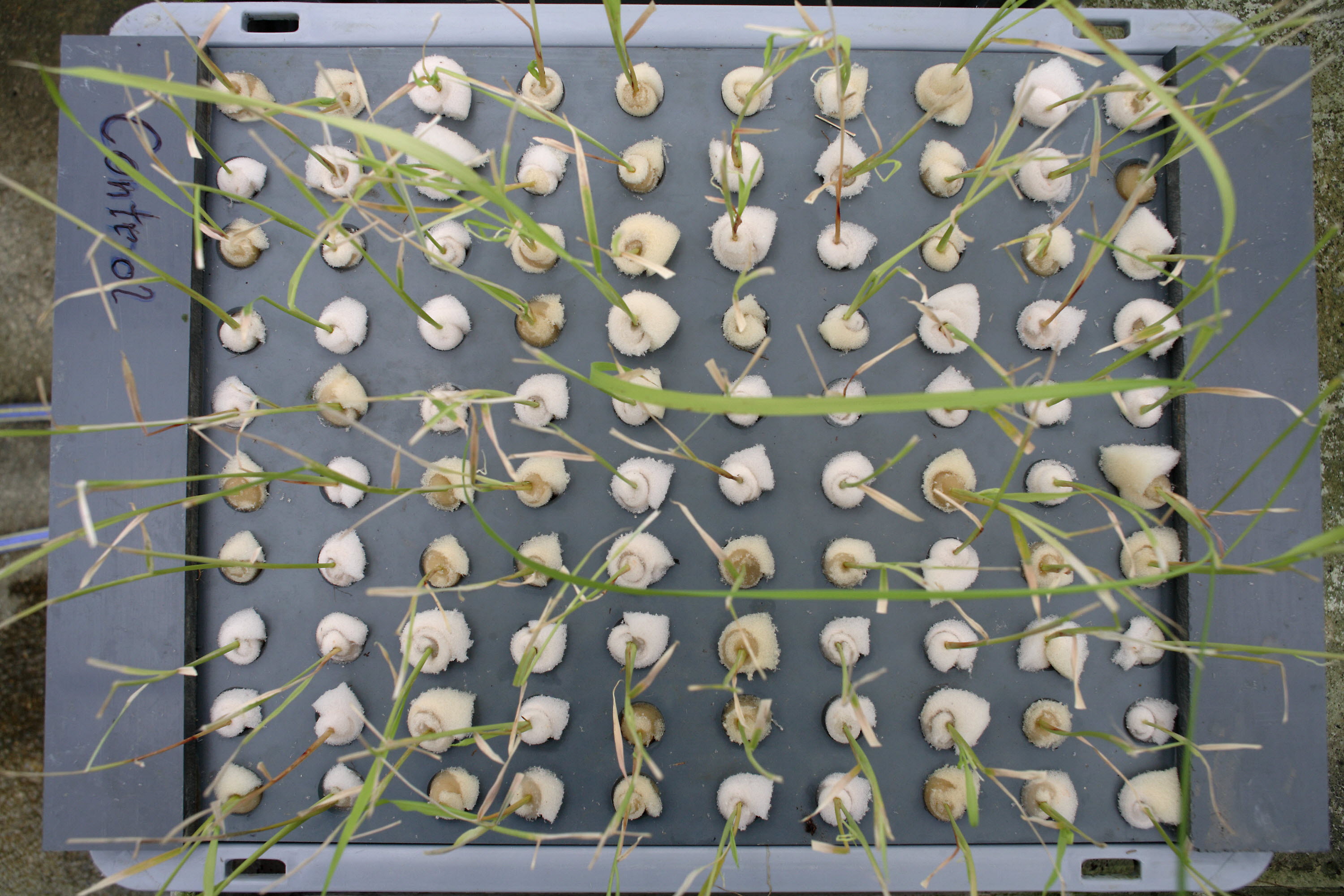Nuclear technologies for more resilient agriculture
FAO/IAEA International Symposium on Managing Land and Water for Climate-Smart Agriculture

Samples of rice seedlings from a study on the effects of cosmic irradiation on rice plants in the Joint FAO/IAEA Agriculture and Biotechnology Laboratory
©FAO/Kai Wiedenhoefer
Rome/Vienna – The Director-General of the Food and Agriculture Organization of the United Nations (FAO), QU Dongyu today hailed the 60-year collaboration between FAO and the International Atomic Energy Agency (IAEA), noting the contribution it has made to global food security and sustainable agricultural development through the safe and appropriate application of nuclear science.
“Our joint efforts on applied nuclear technologies have been a valuable contribution in increasing the resilience of agriculture to climate change, and in reducing greenhouse gas emissions from farmlands”, Qu said in a video message at the opening of the FAO/IAEA International Symposium on Managing Land and Water for Climate-Smart Agriculture being held in Vienna (25-29 July). In particular he referred to the work of the Joint FAO/IAEA Centre of Nuclear Techniques in Food and Agriculture.
The international symposium, which also included an opening address by IAEA Director General Rafael Mariano Grossi, aims to facilitate a valuable exchange of information and knowledge among soil, water, and environmental professionals from developed and developing countries to advance the understanding, collaboration, and capabilities to respond to the impact of climate change in a rapidly changing global environment.
The FAO Director-General recalled how the landmark report "The State of the World's Land and Water Resources for Food and Agriculture 2021", launched by the UN agency in December last year, shows how human-caused land degradation coupled with water scarcity threaten global food security and sustainable development.
This report also shows that current agrifood production models are unsustainable, and the interconnected ecosystems of soil, land and water are being pushed to their limits. Hence the need for the conservation and sustainable management of soil and water to be an important contributor to the transformation of agrifood systems into more efficient, more inclusive, more resilient, and more sustainable systems.
Qu emphasized how the work of the Symposium was relevant to advancing understanding, collaboration, and capabilities to respond to the effects of climate change and biodiversity loss. “Isotope and nuclear technologies generate valuable evidence on soil and water management to develop sustainable solutions to adapt agriculture to climate change, reduce and even sequester greenhouse gas emissions, and increase fertilizer use efficiency”, he said.
FAO and the IAEA believe that identifying where appropriate nuclear techniques can enhance, improve, or increase agricultural production, protect natural resources, promote One Health and facilitate agricultural trade. The Joint Centre works towards a world where peaceful use of nuclear and related technologies contributes to global food security and sustainable agricultural development.
The Joint FAO/IAEA Centre and its Agriculture and Biotechnology Laboratory coordinates and supports applied research through more than 25 coordinated research projects annually where over 400 international and national research institutions and experimental stations cooperate. It also supports more than 200 national and regional technical cooperation projects every year to transfer these technologies to Members. Unique FAO/IAEA Laboratories perform applied and adaptive research and development in order to provide standards, protocols, guidelines, training and specialized services.
Contact
FAO News and Media (+39) 06 570 53625 [email protected]
Giacomo Martella Communications Specialist [email protected]
